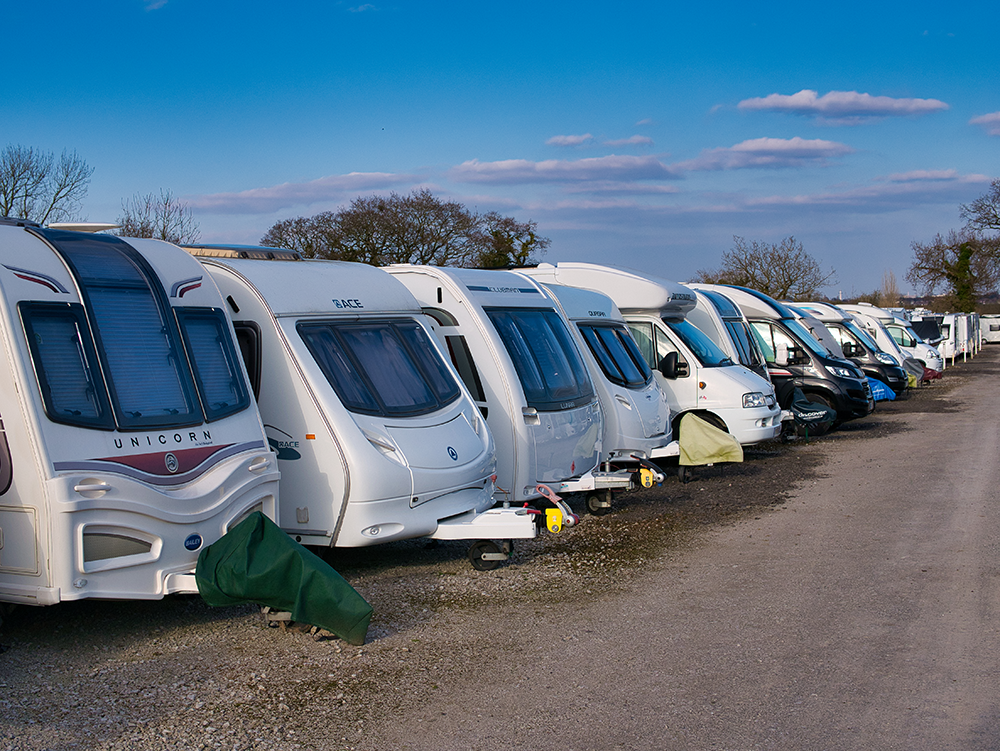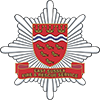
A residential mobile home or caravan doesn't offer as much protection from fire as a house or flat, mainly due to the way they are made.
Smoke alarms and carbon monoxide alarms should be fitted inside so you get early warning of any problems and can get out safely.
Here are some other safety tips.
Know what's available
- Make sure you have a fire extinguisher with British Standards (BS) Approval.
- There should be a fire point no more than 30 metres away and clearly marked. This should have firefighting equpiment and a way to raise the alarm.
- Make sure you have a phone which you can use immediately if there's an emergency.
Think about safety
- If you smell gas, turn off at the main valve or cylinder and seek advice from an expert - don't use naked flames
- Most furnishings are fire retardant, but be careful with cigarettes, matches and candles
- Be tidy: boxes, cases and anything flammable in passageways and doorways may prevent you escaping in an emergency
- Don't allow children to play or leave toys near a portable heater
- In the event of a fire, make sure everyone in the mobile home knows, and get out as quickly as possible, without stopping to investigate the fire - call 999, clearly stating the location of the fire.
Extinguishers
All fire extinguisher, including those used in caravans or motorhomes, should be manufactured in accordance with BS (EN)3 and tested and approved by the British Standards Institute (BSI) or the Loss Prevention Council Certificate Board (LPCB) or approved by the British Approvals for Fire Equipment (BAFE). You can also get a list of approved extinguisher manufacturers from British Approvals Fire Equipment at www.bafe.org.uk.
The different types of fire extinguishers are classed according to the types of fire they should be used to extinguish as follows:
- Class A Involve most organic materials. Such as carbon, wood, textiles and paper
- Class B Petrol, diesel, solvents, paints and other flammable liquids
- Class C Butane and propane, flammable gases
- Class D Flammable metals
- Class F Cooking oils and fats
Although generally dry powder fire extinguishers are very effective in extinguishing all fires, they are not recommended for use in confined spaces such as caravans. We recommend caravan and motor home owners carry a foam fire extinguisher which is the safest and most effective option. It is important that extinguishers are checked at regular intervals in accordance with the manufacturer's instructions, though it’s generally easier and more economic to replace them. A typical life expectancy for a caravan extinguisher is between 3-5 years. It’s important to note that you should never use an extinguisher that has been discharged, even partially.
Outside problems
- Open fires and barbecues should not be held except with the permission of the responsible person
- If permission is granted the open fire or barbecue should be on open ground away from vans, vehicles, awnings and structures
- Areas around the mobile home should be clear of rubbish and other things which could catch alight easily
- Road access and mobile home access should be kept clear to allow emergency services to get to you
- Long grass and vegetation should be cut at frequent and regular intervals, and removed, to prevent it becoming a hazard.
